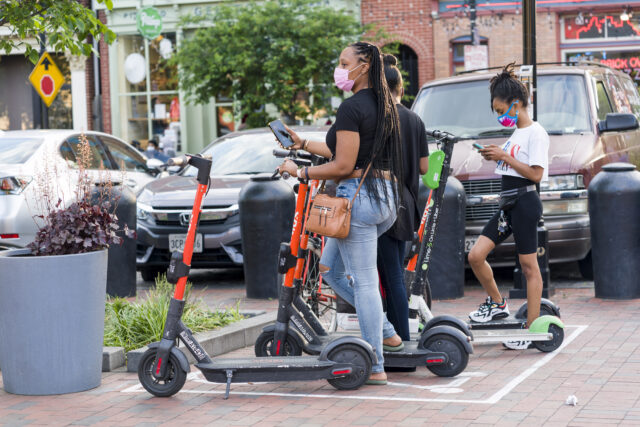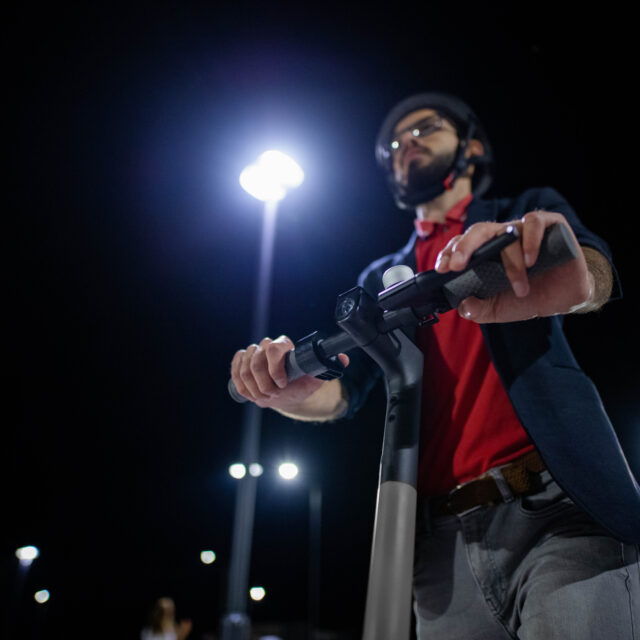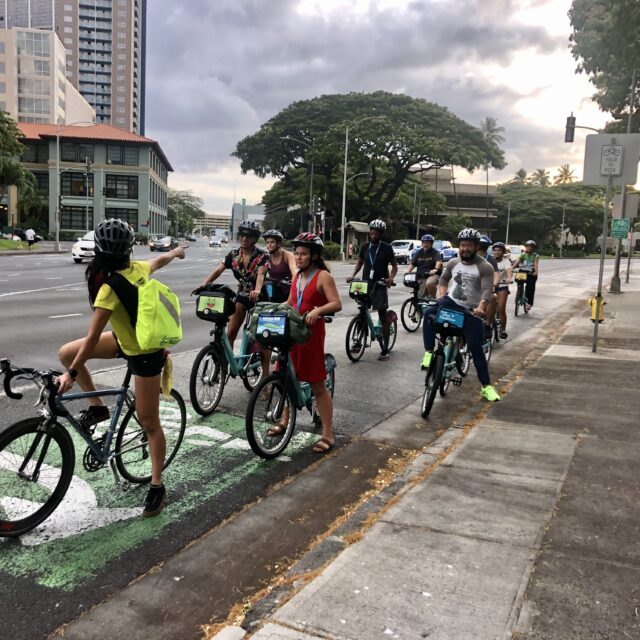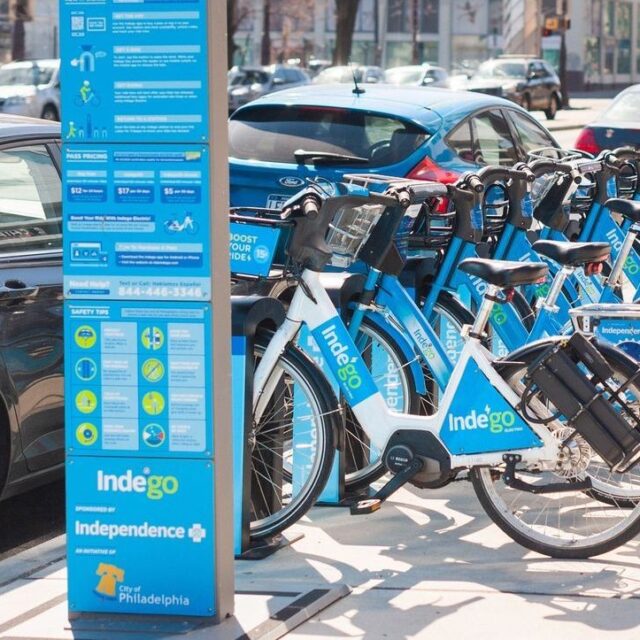Baltimore’s Push to Make Shared Micromobility More Equitable
by Kiran Herbert, Communications Manager
September 5, 2023
The City’s Department of Transportation has partnered with local nonprofits and community organizations to effectively reach transportation-insecure communities.

Photo Credit: Dorret Oosterhoff, Kittelson & Associates
When Baltimore, Maryland, launched a dockless scooter and electric bike pilot in 2018, it was under the helm of Meg Young, and from the get-go, it prioritized equity. Young, who formally launched the program in 2019 and has since gone on to work for the Federal Transit Administration, set it up so that operators were required to always maintain vehicles in Baltimore’s 12 equity zones, or parts of the city with historically marginalized populations, lower than average incomes, and a high percentage of households without access to a vehicle.
“Meg Young worked to create a really holistic program that supports both the goals of promoting equitable transportation and sustainable transportation,” says Kaitlyn Schaffer, an engineer at Kittelson & Associates that contracts with the Baltimore City Department of Transportation’s (BCDOT) on shared micromobility. “Our program today has policies in place that make dockless scooters and bikes accessible throughout all of Baltimore, and not only geographically accessible but also accessible to different people regardless of income or abilities.”
Today, two companies operate in Baltimore: Spin, which provides e-scooters and e-bikes, and Superpedestrian, which has standing and seated e-scooters. Both companies offer low-income price plans for residents of Baltimore who qualify for any sort of government assistance (Spin Access offers a discounted rate of $0 to unlock and $0.10/minute, while Superpedestrian’s LINK-Up offers 70% off of a trip’s total cost). Superpedestrian also offers adaptive vehicles in Baltimore — namely, an electric attachment for wheelchairs and an electric tricycle — which people can rent on demand through the company’s app.
When BBSP opened its last mini-grant round in February of this year, BCDOT took the opportunity to apply for funding to improve upon the equity initiatives it already offers in the shared micromobility space. In June, BCDOT was awarded a grant to fund aspects of its Dockless Vehicle Program, including support for discounted equity plans and educational activities to encourage participation from eligible residents.
“In order to use a low-income equity plan, you have to know it’s available to you and you need to know how to register for it,” says Schaffer. “We wanted to use this grant to make our staff and private operator staff [from Spin and Superpedestrian] available to distribute information about the equity plans.”
BCDOT will use its funding to educate the public on dockless micromobility, how it works in Baltimore, and what people need to do to sign up for the equity programs. Education will happen in various forms including spreading the word through partners like Moveable Feast, a nonprofit that provides meals and groceries to people, as well as libraries, community centers, and transit stations, as well as through pop-up events. Pop-up events will take place in partnership with local bike advocacy nonprofit Bikemore. Grant funding allows BCDOT to compensate its partners for their time and relationships, which is done via the Baltimore Civic Fund, a local organization that BCDOT partners with to efficiently distribute funding.
Each pop-up event — most of which are scheduled for September, and October — will be held in a different transportation-insecure community and feature representatives from Spin, Superpedestrian, and BCDOT to talk about the Dockless Vehicle Program with residents, as well as to help them sign up for equity passes on the spot. There will also be vehicles present for folks to try, and free rides available from operators to help spur communal adoption (into the fall, for longer periods of time, operators will also run promotions offering free and heavily discounted rides to anyone who starts in an equity zone). BCDOT also hopes to combine some of the pop-ups with bike lane clean-up events in order to draw people’s attention to safe infrastructure while educating them about the equity plans and building community.
For BCDOT, the more people that use the equity plans, the better. Not only can dockless vehicles help provide mobility for transportation-insecure individuals at an affordable price, but they’re more sustainable, a win for the whole community. There’s also evidence that the Dockless Vehicle Program is already filling a gap in Baltimore’s transportation landscape: Equity plan users take 3x as many rides as all other users.
“Once people know that these equity plans are available to them, they’re really well used, but getting that information to people — it’s definitely been a barrier,” says Schaffer. “This grant provides us more opportunities to spend dedicated time and money with other community organizations to do pop-up events, to make staff available to communities, to give information about the plans, and to make sure people know the options they have available and how to access them.”
The Better Bike Share Partnership is funded by The JPB Foundation as a collaboration between the City of Philadelphia, the National Association of City Transportation Officials (NACTO), and the PeopleForBikes Foundation to build equitable and replicable bike share systems. Follow us on LinkedIn, Facebook, Twitter, and Instagram, or sign up for our weekly newsletter. Have a question or a story idea? Email kiran@peopleforbikes.org.



